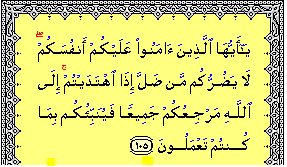Shaikh Mufti Mohammad Rafi’ Usmani (Allah preserve him) said,
‘I received a letter from a medical student regarding the fiqhi ruling of a dilemma he was facing.
He wrote that previously he had been a carefree youth, however, in medical college he met some individuals active in the work of Dawah & Tabligh. He benefited a lot from their company and became very active in the work himself. For the previous few years he participated in the taleem everyday, made the weekly gasht, spend the Friday night at the markaz, went out for 3 days each month and forty days a year meticulously. However, the schedule, curriculum and activities at the medical college were always an obstacle in doing all these works in the path of Allah. He had been using excuses to be absent from the college to do all these activities and his learning was being neglected. He wanted to know if it was permissible as per Shariah rulings to do so.
It was explained to him that lies and fraud are impermissible in Islamic Shariah.
It is to be understood that the working on a path to Allah in not restricted to the work of Dawah & Tabligh per se. The studying to adopt a profession with an intention to earn lawful income, sustain a family and help the needy in also working on a path to Allah. With this intention your medical studies will also become an act of worship.
On admission to the medical college you made a contract that you will abide by the rules and regulations of the institute. They included that sufficient attendance to learning activities is essential. This contract is morally and legally (as per Shariah) binding. Breaching it will be sinful. The lies and deception to do so will further increase the severity of sin.
Moreover, without thorough knowledge, supervised training and extensive practice of medical sciences it will be impermissible for you to treat patients. It will be tantamount to playing with an individual’s life.
(Addressing the audience Mufti sahib added:)
We must not restrict Deen to certain activities according to our perceptions.
Also, it must be clear that I am not against the movement of Dawah & Tabligh. None can depreciate the significant work being done by this movement worldwide.
It is necessary that we have clear understanding: How to practice and implement the Deen in our life?
The pious expert tell us that the most effective way of doing this is to have a islahi relationship with a pious Shaikh. One has to consult him for all his religious issues, ask for guidance and supplications and do what he prescribes. Only then true Deen comes into one’s life. ‘
Qari Rafeeq’s residence, Safa distt, Jeddah, bayan after maghrib, 20th January 2012


















